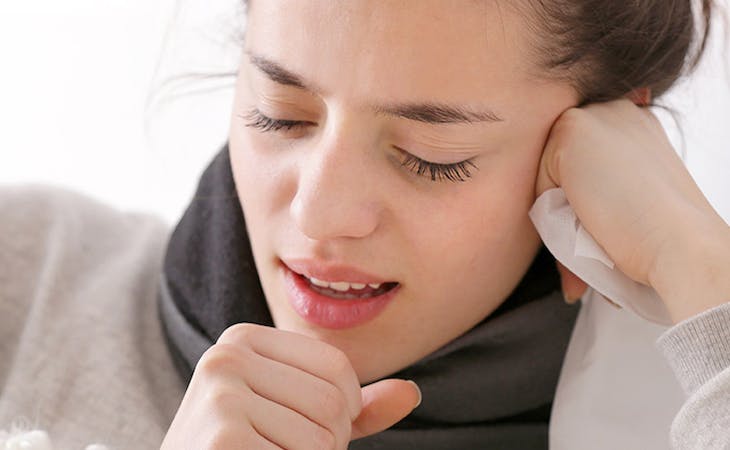As the public’s stress level rises with each news update on the spreading novel coronavirus, your bed and bedroom can remain a sanitary sanctuary—even if someone in your household is sick—by taking a few easy measures. Here, learn more about coronavirus and how it spreads, plus what you can do to keep your bedroom germ-free.
What is coronavirus?
Coronavirus (CoV) is a family of viruses that causes respiratory illness, ranging from the common cold to life-threatening conditions such as Middle East Respiratory Syndrome (MERS-CoV) and Severe Acute Respiratory Syndrome (SARS-CoV). The novel coronavirus was first identified in humans in Wuhan, China, in December 2019.
Like MERS and SARS, it seems that SARS-CoV-2—the virus that causes COVID-19, as the illness is known—likely originated in animals and then spread among people.
Like SARS, the new coronavirus exhausts the protein that helps minimize inflammation in the lungs. “Without it, the lungs can be turned into a hotbed of trouble leading to pneumonia and a life-threatening condition called acute respiratory distress syndrome (ARDS),” explains Canadian microbiologist Jason Tetro, host of the Super Awesome Science Show and author of The Germ Files. “This is why this coronavirus, like SARS, is so troubling, particularly if you happen to have pre-existing conditions such as hypertension, diabetes, and lung diseases.”
The good news, health officials agree, is that coronavirus does not present a serious threat to most people.
How do you keep your bedroom germ-free?
The CDC reports that the coronavirus is thought to spread mainly person to person, between people who are within about six feet of each other, through respiratory droplets produced when an infected person coughs or sneezes.
“It may be possible that a person can get COVID-19 by touching a surface or object that has the virus on it and then touching their own mouth, nose, or possibly their eyes, but this is not thought to be the main way the virus spreads,” according to the CDC.
Still, the CDC recommends cleaning and disinfecting frequently-touched surfaces in your home, such as doorknobs, water faucets, TV remotes, and bedside tables, especially if someone is sick. You should also clean any surfaces that may have blood, stool, or body fluids on them. Use a household cleaning spray or wipe according to the label instructions.
Fortunately, we know from other coronaviruses that most household cleansers, such as bleach wipes or alcohol, will kill them. Even simply wiping down surfaces with soap and water should work because soap, as a detergent, can break down the virus’s lipid coating.
You’ll also want to avoid sharing household items with someone who is sick. That includes dishes, drinking glasses, cups, eating utensils, towels, and bedding, per the CDC. (That means you may want to sleep separately if you have a sick partner.)
When it comes to individuals sick with COVID-19 specifically, the CDC states: “As much as possible, you should stay in a specific room and away from other people in your home. Also, you should use a separate bathroom, if available.”
What is the best way to clean bedding when someone’s sick?
Taking proper measures to wash your bedding when someone in your household is sick is also key to stopping the spread of germs. Here’s how the CDC recommends you clean bedding to prevent the spread of coronavirus and other respiratory illnesses:
- Immediately remove and wash bedding that has blood, stool, or body fluids on it.
- Wear disposable gloves while handling soiled items, and keep those items away from your body.
- Clean your hands with soap and water or an alcohol-based sanitizer immediately after removing and disposing of your gloves.
- Read and follow label directions on laundry items and detergent.
- Use a normal laundry detergent according to washing machine instructions and dry thoroughly using the warmest temperature setting the item’s care instructions recommend.
“Luckily,” says Tetro, “COVID-19/SARS-CoV-2 is a very fragile virus. It has an outside coating that is made of molecular fats called lipids. Any kind of surfactant like soap or laundry detergent will kill this virus.”
Even if nobody in your house is sick, it’s a good idea to wash your bedding at least every other week—and don’t forget about your pillows and blankets. Choosing antimicrobial fabrics is another good idea. All of Saatva’s mattresses, for example, have been treated with Guardin, an exclusive antimicrobial agent, to protect the fabrics in the mattresses and inhibit the growth of germs.
We’ve put together a list of articles to help keep your bedroom clean (and free of germs) all year long:
- How Often Do You Really Need to Change Your Sheets?
- Why You Should Wash Your Pillows (and How to Do It)
- How Often You Should Be Replacing Your Pillow
- How Long Does a Mattress Last?
- An Expert Guide to Cleaning Every Type of Bedding




